See Daylight
See Daylight is an attempt to understand and question the market forces that shape young artists of today. It’s not a text that takes this challenge easily. It does not want to lie down a strict story, or one interpretation of our current discourses, but instead, challenge and take the reader on a journey. By breaking the fourth wall, it speaks directly to the reader in an attempt to start a conversation that is unfolding and by no means is closed or finished. It is a playful, self-reflective, open-ended conversation between reader and writer.
A book for young artists starting out today in the art market, trying to survive and be seen. There are many books out there that are meant to give carrier advice to the new generation. How to reach audiences, how to sell your work, how to find a gallery, basically how to make it.
See Daylight challenges these discourses. Instead of offering a business plan for individuals out there eager to fulfill themselves, it questions these power relations and market forces. It is a conversation, not a one-way critique of the art market, but instead hopefully a start of a critical, honest conversation.
Concept and Text: Kata Geibl
Graphic Design: Csenge Katinka
2021

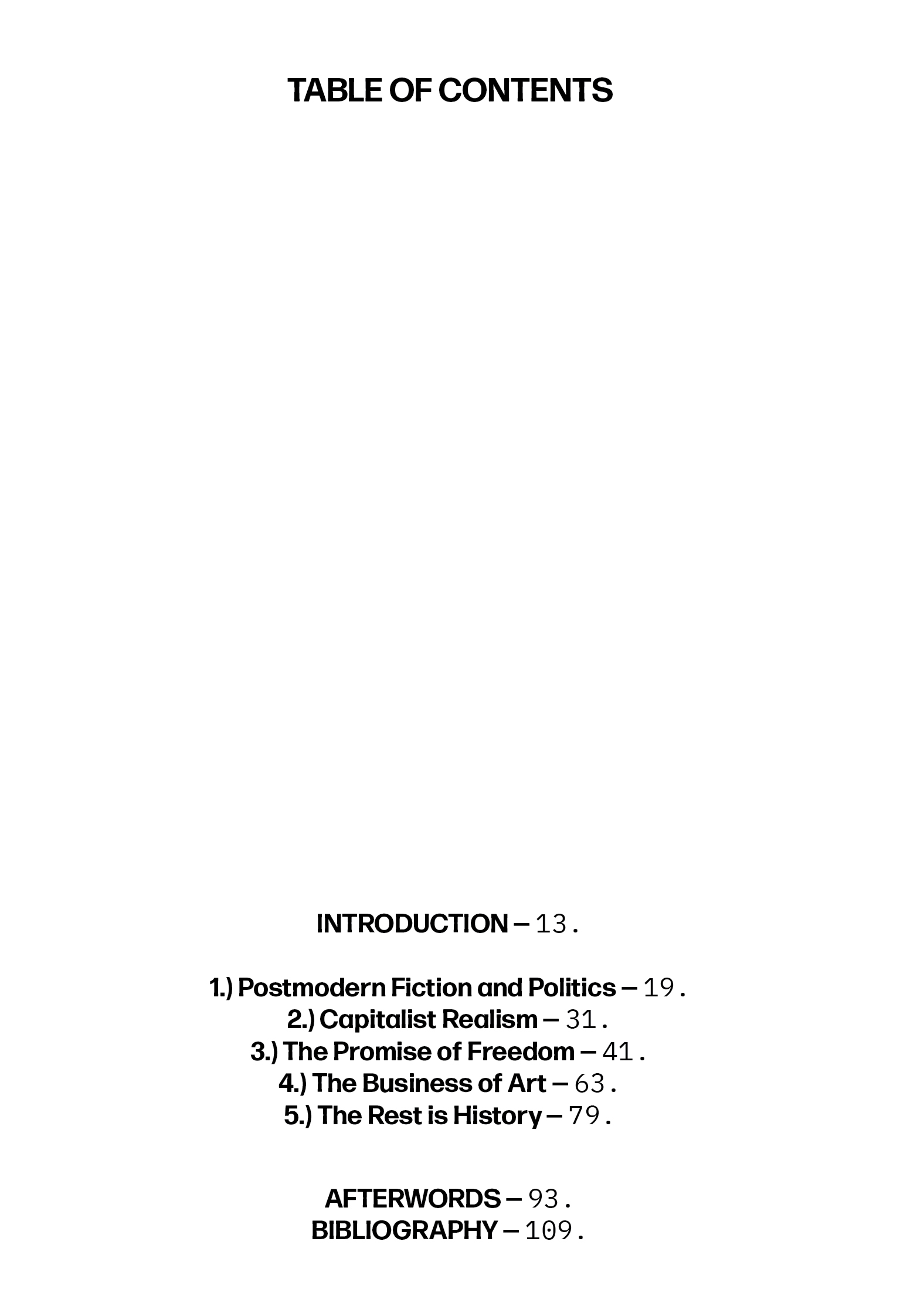

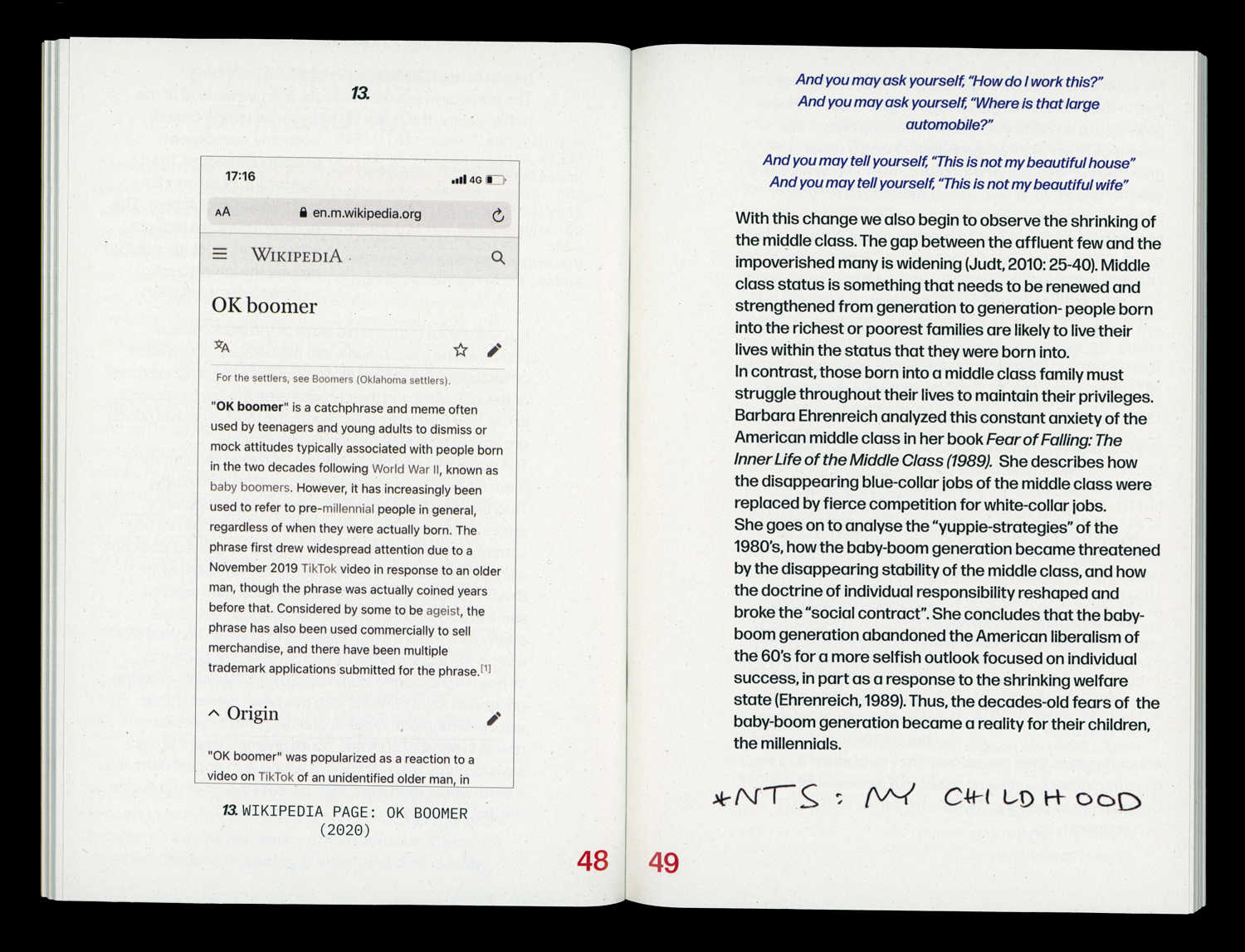
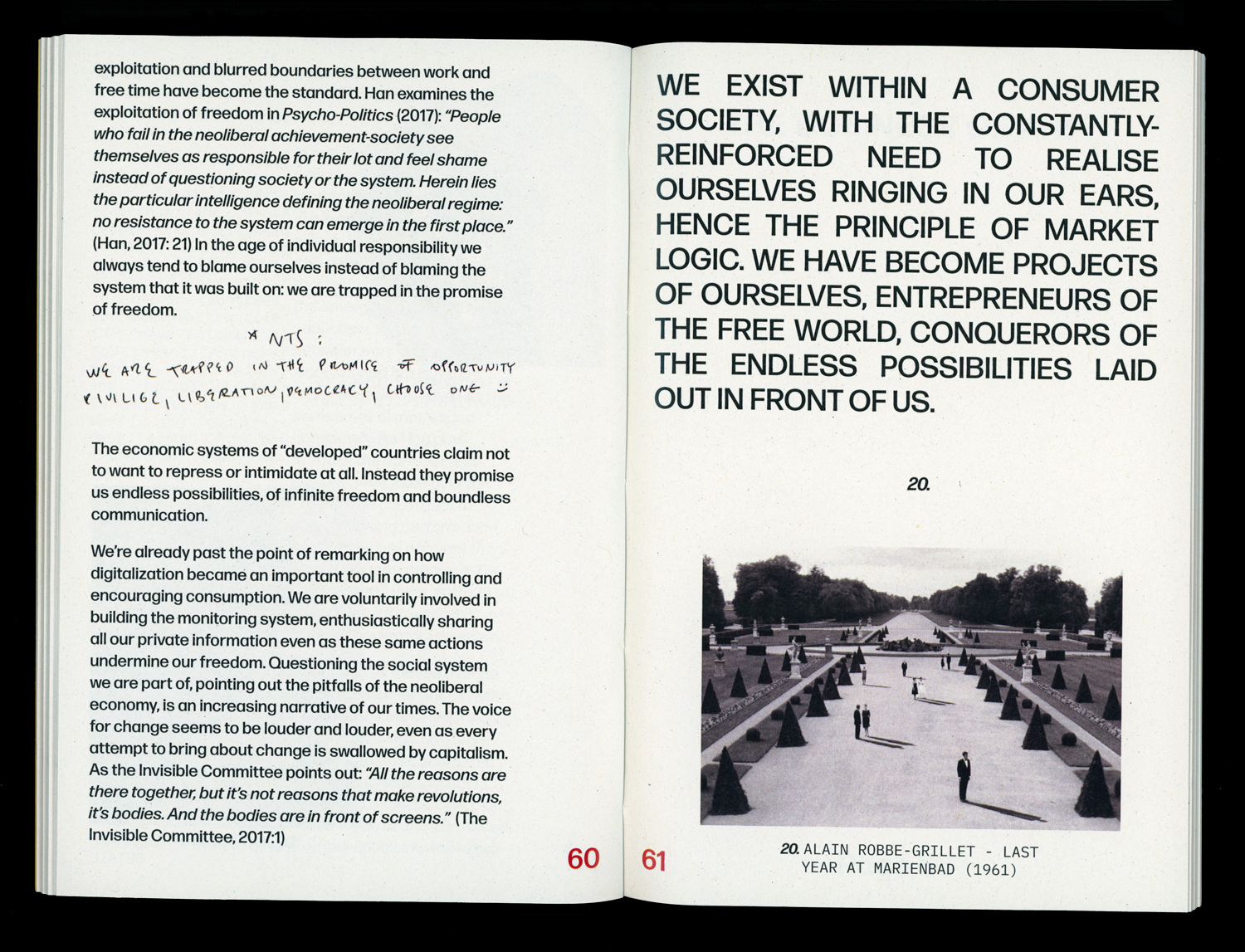
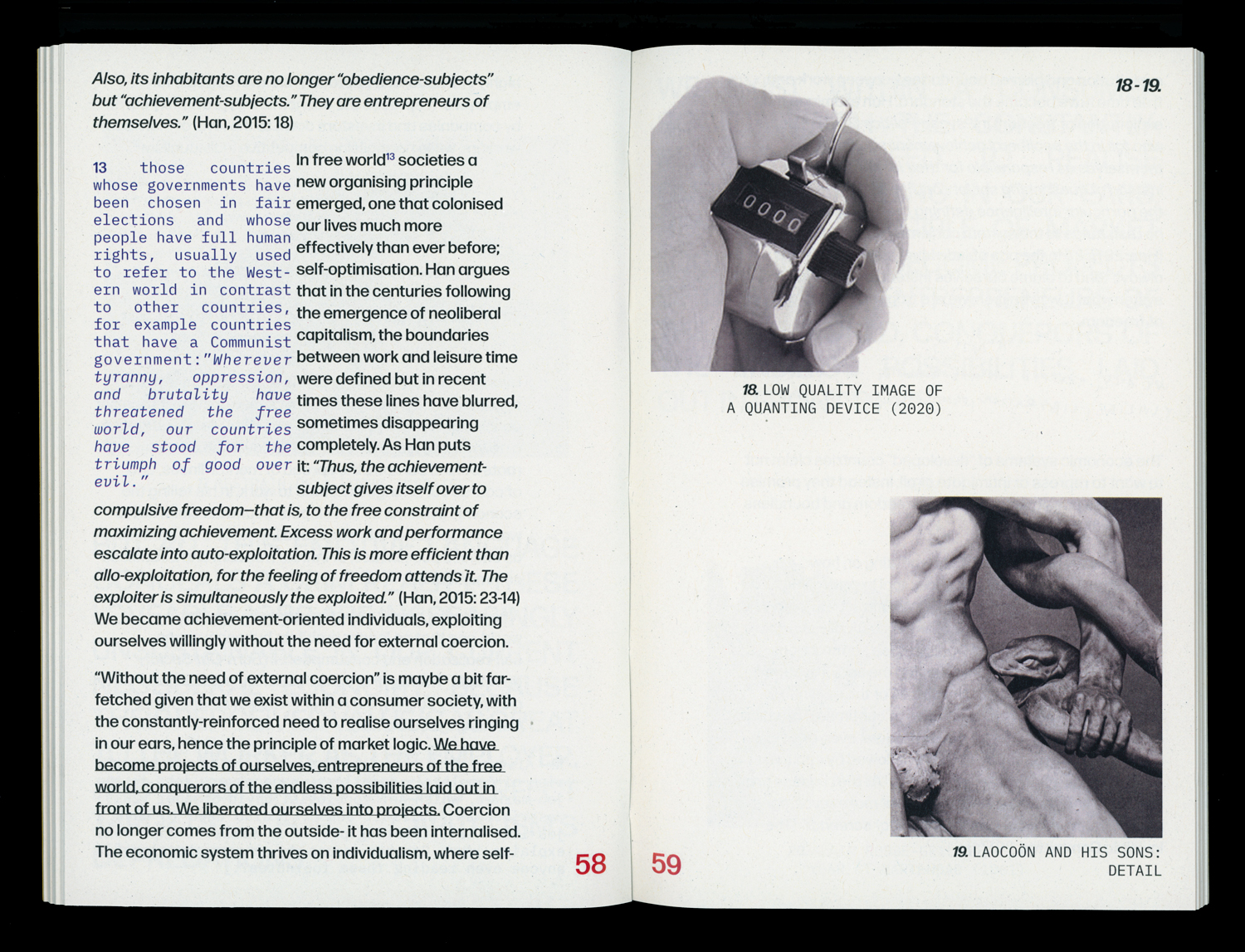
The work starts with the analysis of postmodern discourse, and how postmodern ways of production still frame the cultural logic of today. This chapter equips the reader with the skill set to interpret and question the narratives of cultural conflicts which transformed the Western World into a tense, divided society.


The following chapters sketch out how neoliberal modes of production changed our perception of reality and our workday. The framework of consumer society and competitive individualism how an entire generation called the Millennials were faced with a new ideology, centered around the importance of individual responsibility.
After the analysis of political forces that abandoned collectivism and placed its emphasis on the empowerment of the individual and their progress as the key to success, the thesis untangles some of the ways in which these forces affected the art market from the 1970s onwards, and how these power relations are still affecting artists today.

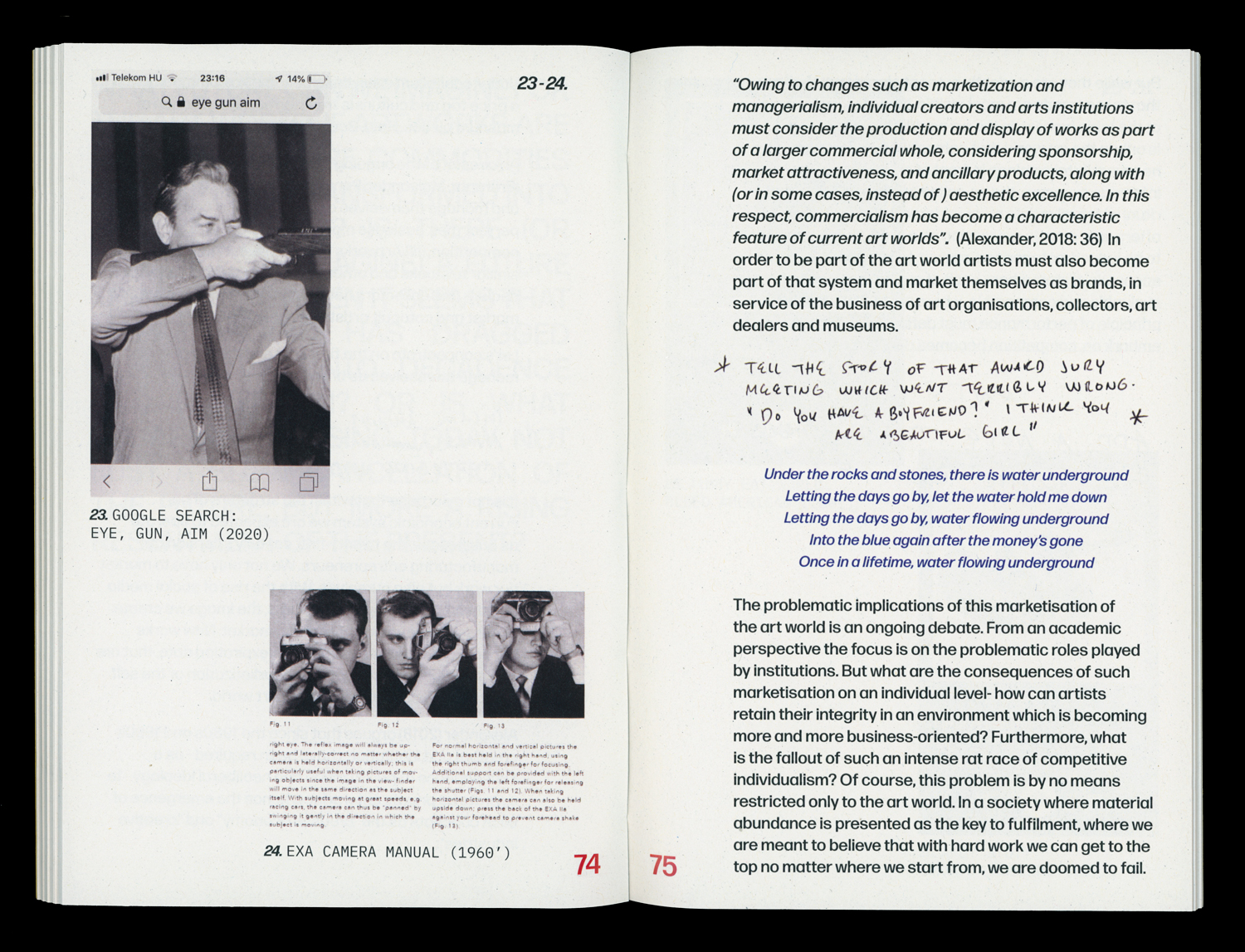
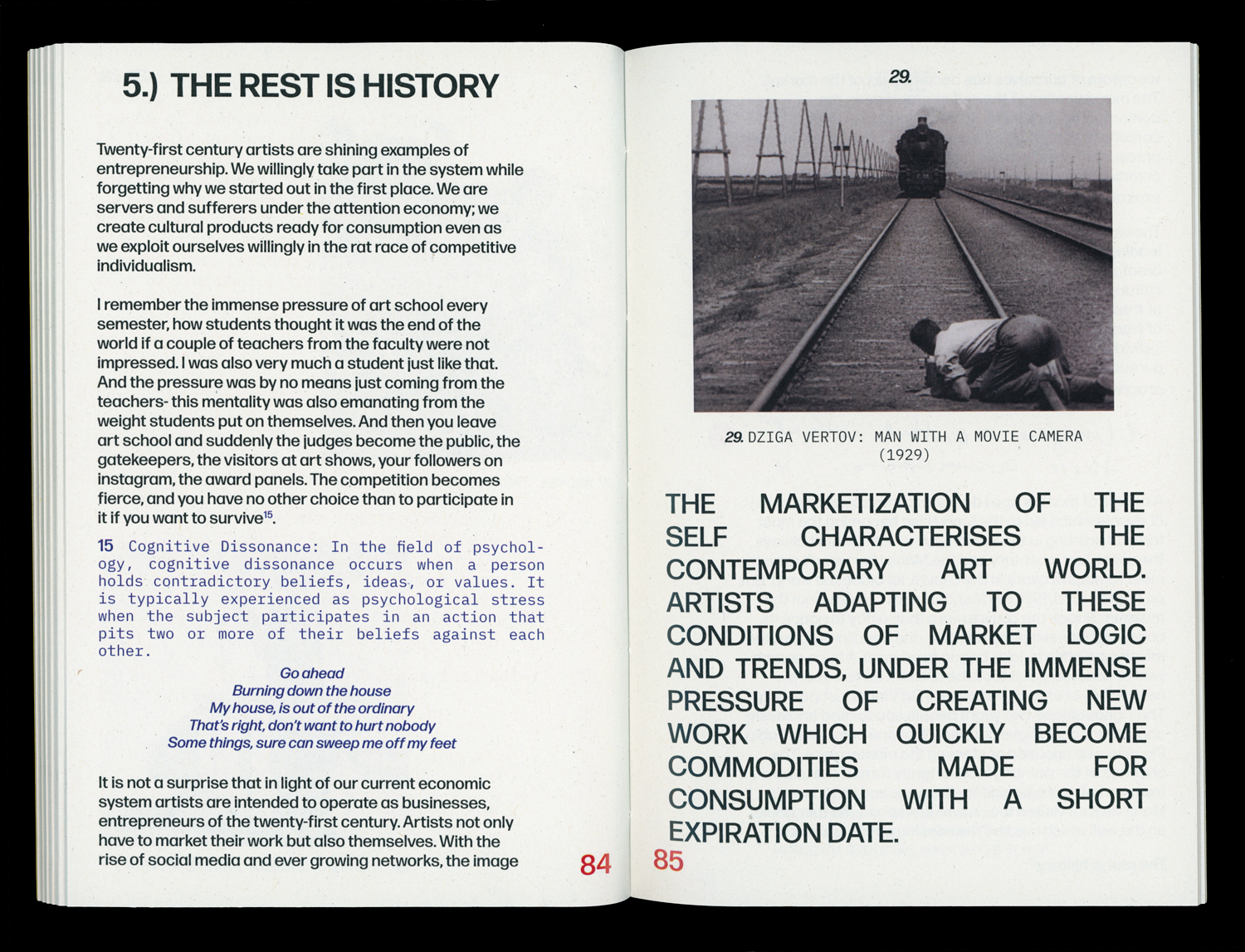
More information soon